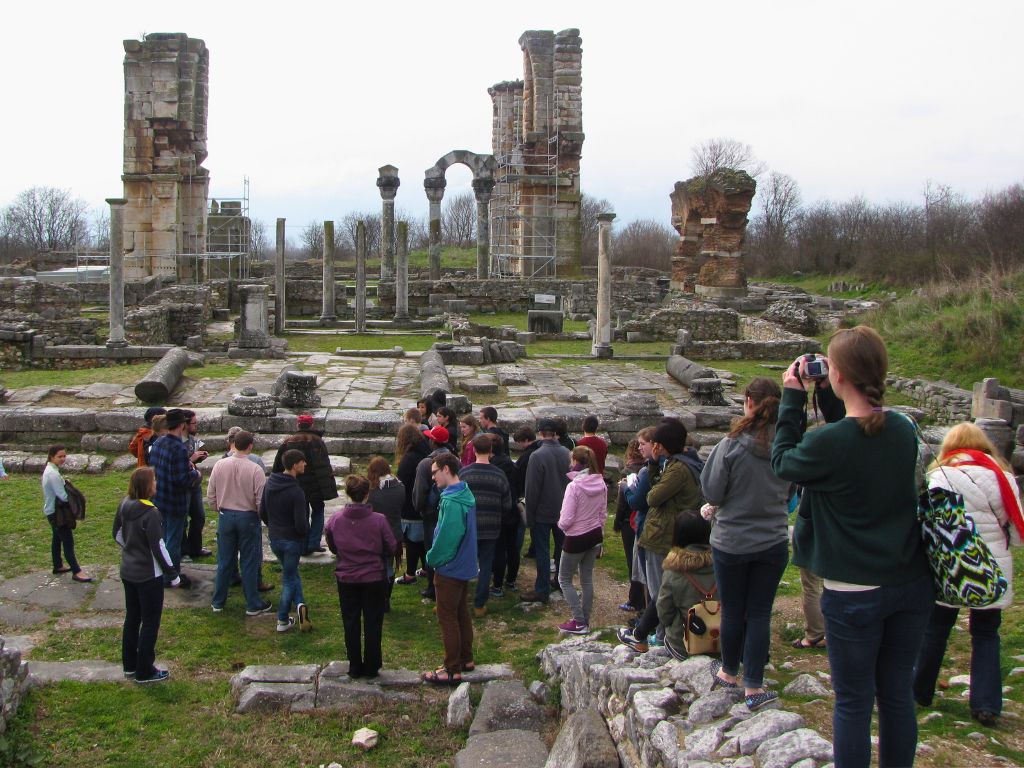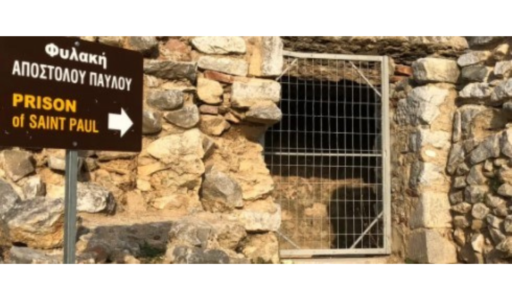People of the eighth century thought they found the Prison of Saint Paul! When the basilica, built on top of a chamber, collapsed, they assumed the basilica had been built there because it was the site of the Prison of the Apostle Paul. They developed the tradition that this chamber was a prison. But was it the long sought-after site of the prison of the Apostle Paul?
Written in Hebrew, Greek, and English, a sign points towards a chamber door, “Prison of Saint Paul.” Is this chamber the prison of the Apostle Paul? No, it is not.
It is not the prison of anyone. This is not a prison. The plaster on the inside is the hydraulic plaster of cisterns. But temples did have water cisterns, or wells, because people made blood sacrifices at the temple. It is a temple cistern.
Above the level of the Via Ignatia, from the time of the Apostle Paul and approximately four hundred years after him, all the flattop area was the place of a temple. A water cistern was placed here, but a prison was never placed among the temples.
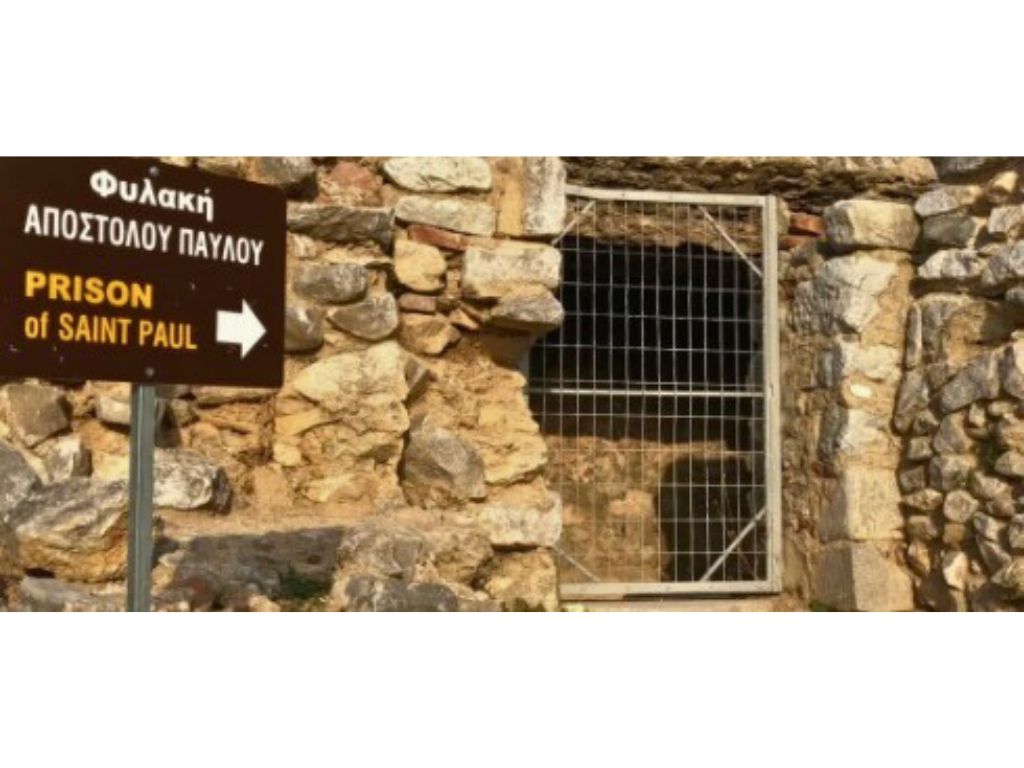
When Theodosius removed the pagan temple, he recycled the building material and incorporated the old staircase into a new basilica.
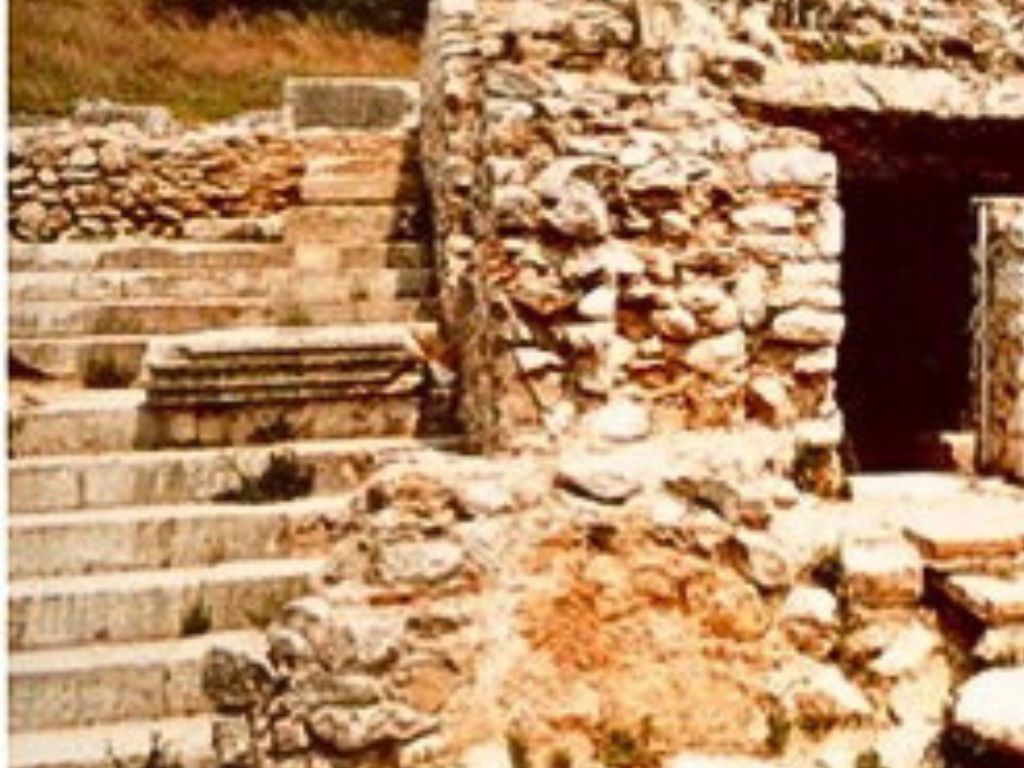
The staircase is the older part, which leads up to the top, where we see the foundation of a pagan temple. Theodosius incorporated the old staircase into a basilica which he built at the top of the plateau.
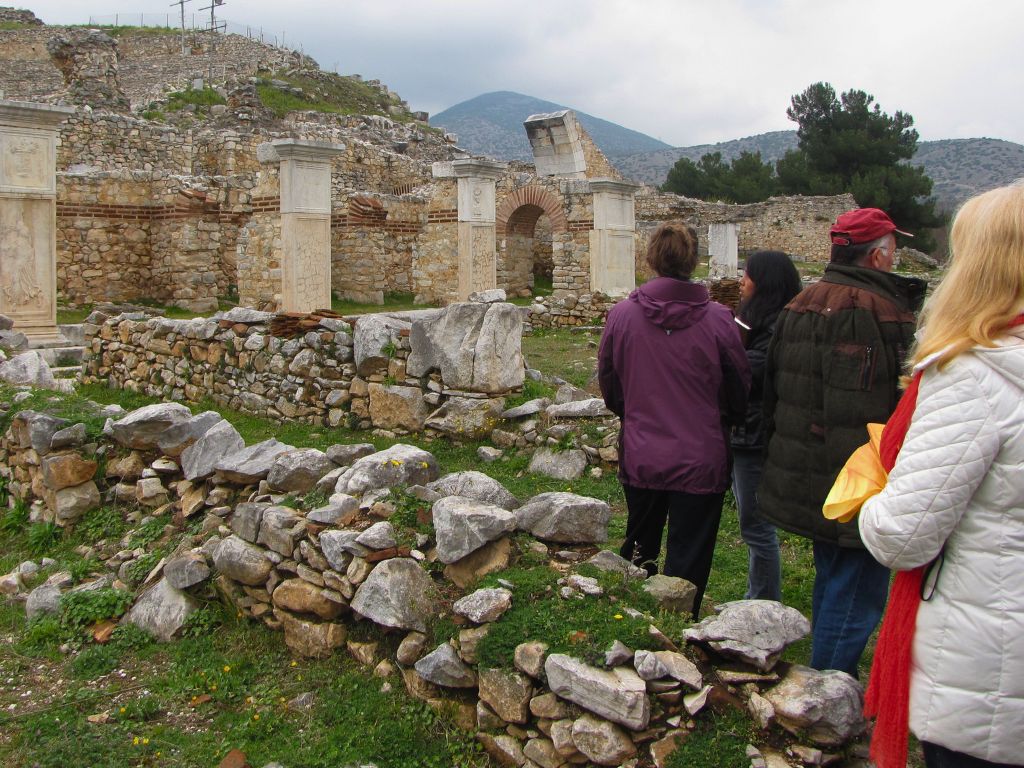
The question remains, where is the prison of the Apostle Paul? We do not know. In historic places, like Philippi, tradition is stronger than fact itself. The Orthodox and Catholic Churches come to this place to have services once per year to honor the imprisonment of the Apostle Paul.
In other places of excavation, like in Athens, the prison is connected to the administrative section. And that makes sense. So, Paul’s prison may be behind the general’s office, an area which has not yet been excavated.
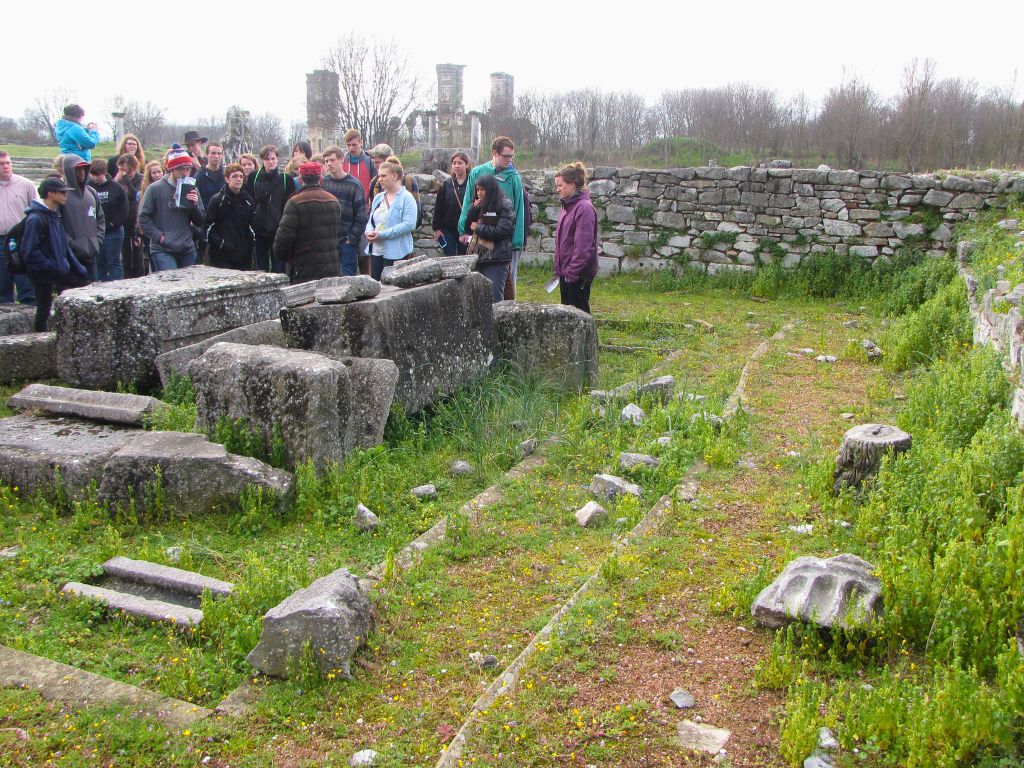
Excavation work around the general’s office stopped when the professor assigned to focus on the residential/urban area of Philippi, died. The work in that area went into transition. The transition is incredibly special.
One day in the future the area behind the administrative offices will be developed, and excavated, and then we will see if the prison of the Apostle Paul is behind the General’s Office in Philippi, Greece.
